The Crucial BX200 (480GB & 960GB) SSD Review: Crucial's First TLC NAND SSD
by Billy Tallis on November 3, 2015 9:00 AM ESTAnandTech Storage Bench - The Destroyer
The Destroyer is an extremely long test replicating the access patterns of heavy desktop usage. A detailed breakdown can be found in this review. Like real-world usage and unlike our Iometer tests, the drives do get the occasional break that allows for some background garbage collection and flushing caches, but those idle times are limited to 25ms so that it doesn't take all week to run the test.
We quantify performance on this test by reporting the drive's average data throughput, a few data points about its latency, and the total energy used by the drive over the course of the test.
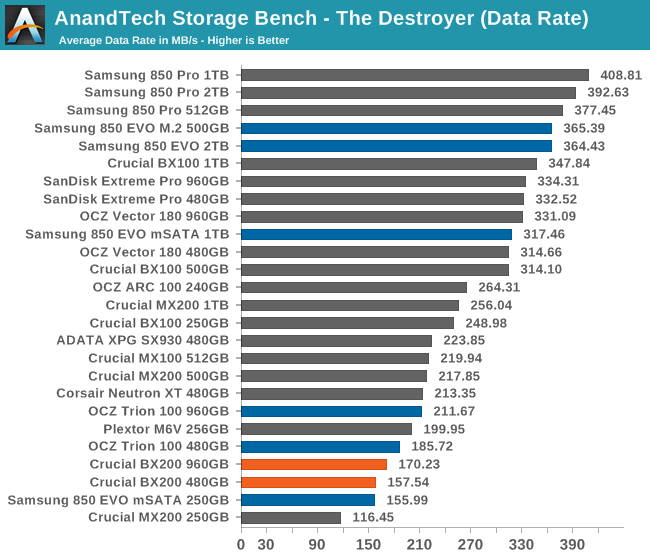
The BX100's performance on The Destroyer isn't dead last, but it underperforms for its capacity.
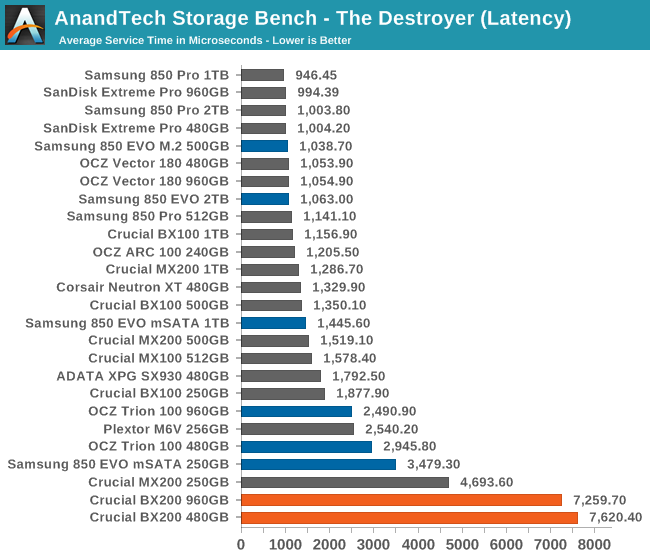
Average service time is startlingly high and is close to a hard drive's seek time.
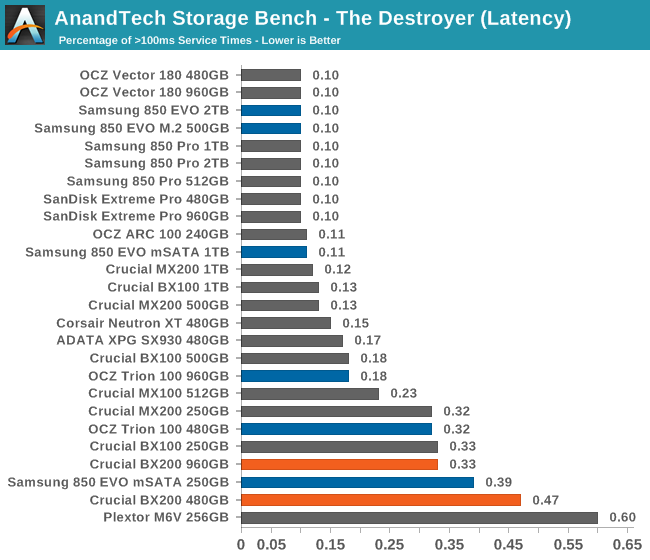
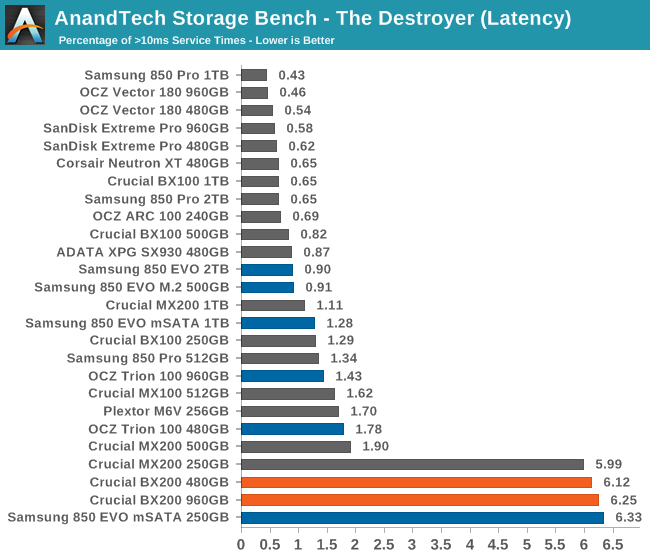
The frequency of performance outliers is in line with the other two low performers on this test, indicating that the BX200's performance doesn't stutter any more often, but it pauses for longer periods of time when it does stutter.
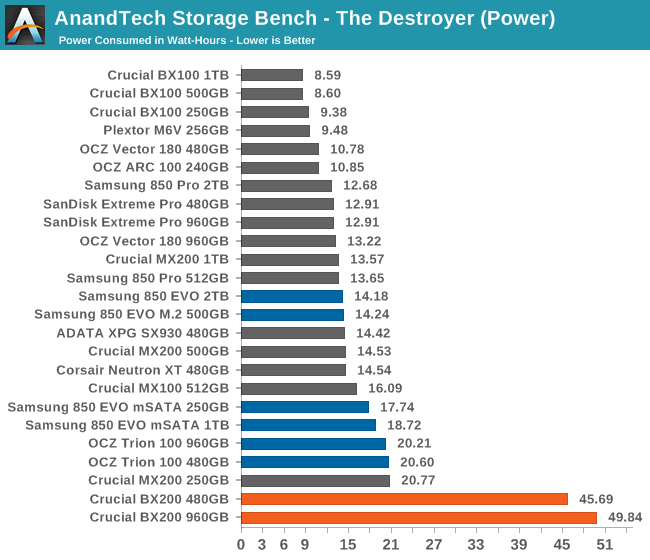
Higher power consumption is to be expected from a drive using TLC NAND, but the BX200 consumed more than twice the energy over the duration of The Destroyer than any of the other drives, and more than five times as much as the BX100. The BX200 didn't take vastly more time to complete The Destroyer, so it was clearly not making good use of idle time.










85 Comments
View All Comments
extide - Tuesday, November 3, 2015 - link
So, apparently the first "bad" crucial SSD. Oh wait, no, the second one, remember that V4 or whatever it was, heh.hojnikb - Tuesday, November 3, 2015 - link
This is miles ahead V4, because this is usable, while V4 was not.iLovefloss - Sunday, November 8, 2015 - link
Nah, Crucial still had their M4 which quite a few issues for many people.Glock24 - Tuesday, November 3, 2015 - link
Wow, didn't expect such a product from Crucial. The only other SSD that performs worse than a mechanical disk is the Kingston SSD V300 that is still being sold.hojnikb - Tuesday, November 3, 2015 - link
V300, despite its hate, is still *much* faster than any HDD out there.Glock24 - Tuesday, November 3, 2015 - link
Maybe you got lucky, but I bought one after reading some good reviews (before the nand change fiasco hit the news) and after a while I noticed something was wrong because of the painfully slow performance. It was giving me reads close to 100MB/s and writes on the 20MB/s range, and that's sequential performance. I usually do not notice any difference in tel world performance between different SSD models, but with the V300 was very notorious. Even the HDD I had in use at the time felt faster (Spinpoint F1 1TB). So no, the V300 is not faster than any HDD.hojnikb - Tuesday, November 3, 2015 - link
that was a faulty model or issue on your end. eve the crappiest models were good for atleast 75mbs of write....Gigaplex - Tuesday, November 3, 2015 - link
And most hard drives these days can beat 75MB/s sequential write.hojnikb - Wednesday, November 4, 2015 - link
sequential speeds matter very little, its the random performace that makes ssds fast. and those are orders of magnitude better, even with v300jabber - Tuesday, November 3, 2015 - link
Yeah I use V300's exclusively in SATA II based PCs and laptops as they will push 270MBps+ all day long. No point buying 850 EVOs there. Must have bought 50+ and all of them are still going strong.